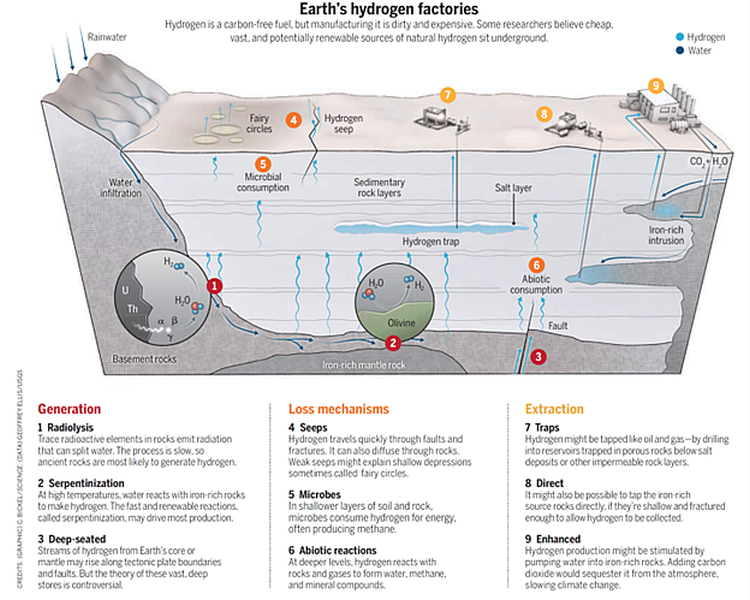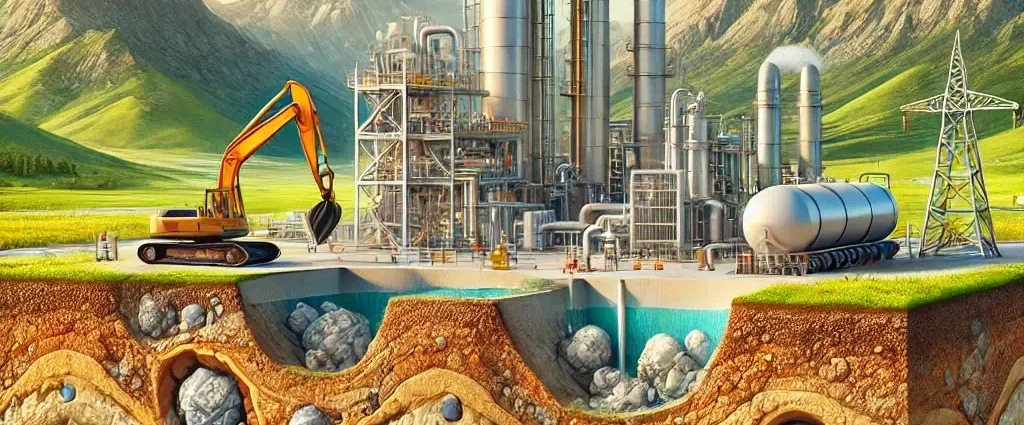In a world increasingly driven by technological innovation, the idea of digging underground for resources may seem outdated. However, tapping into underground hydrogen (H2) deposits could meet rising energy demands while contributing to climate change solutions.

Unlike oil and gas, which are found in softer, organic-rich shale, hydrogen is naturally accumulated in iron-enriched rocks like olivine. This occurs because of its higher density at the surface. Heat, pressure, and water are responsible for the formation of hydrogen in chemical reactions. The separation of water molecules into individual molecules is facilitated by radiolysis, an additional method.
The underground storage capacity of H2 is estimated to be in the range of up to a trillion tons, which could meet energy requirements for many years.
The interest in geologic hydrogen has grown rapidly in recent years. Southern Australia and its opportunities are being sought by. startups around the world. Koloma, an American firm, has raised over $350 million for this exploration, as an illustration. However, the industry is still plagued with many questions that include how much H2 to extract economically and where to find it.

Environmental monitoring of geologic hydrogen is still in progress.? While H2 doesn’t warm the planet directly, it can indirectly contribute to global warming by prolonging the lifespan of other greenhouse gases. Also, hydrogen deposits are frequently found alongside methane (a potent greenhouse gas), leading to concerns about potential leaks.
Transportation challenges also loom large. Hydrogen’s low density makes it expensive to store and transport, especially for deposits located far from consumers. However, Researchers are exploring novel approaches, such as injecting water into rocks to generate hydrogen, which could increase the potential resources.’

Leveraging the oil and gas industry’s expertise to extract hydrogen could strategically align with efforts to reduce emissions. This approach repurposes over a century of fossil fuel exploration knowledge for a cleaner energy future.
The issue at hand is not extraction, but rather emissions. By harnessing geologic hydrogen in a responsible manner, we can achieve societal energy security and tackle climate problems.
Reference- MIT News, Interesting Engineering, ars Technica, Yale E360, S&P Global






